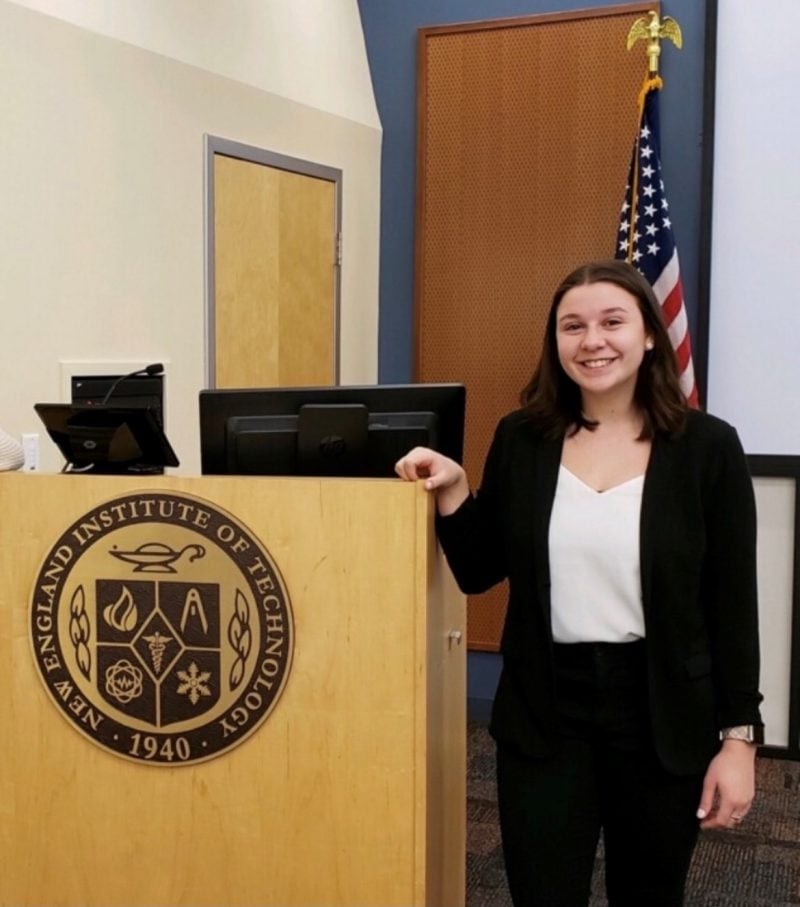Program Overview

A business management degree helps you advance your knowledge of Business Management over a broad range of technical, analytical, and people skills.
Any Associate degree graduate is eligible for the Bachelor’s in Business Management program. As part of the skills gained through our degree, you will learn to practice effective communication and interpersonal relationships. In the program’s coursework, you also learn how to make business decisions about employees, negotiate with business partners to maximize earning potential, and navigate organizations using teamwork and leadership.
The business management degree program also sets you on your career path and prepares you for real-world jobs. As part of the business management degree, you learn about accounting, finance, business operations and service management, and marketing with the help of real-life scenarios. As a graduate, you prepare for a range of positions in many industries, with the entrepreneurial background to start your own business.
It isn’t all classroom study either, as a few of your degree credits require you to gain hands-on work experience through internship programs.
Read More We have designed the Bachelor of Science Degree in Business Management (MGTB) program to help students acquire a broad range of knowledge and skills. Such skills help graduates be successful managers or small business owners in a variety of fields. The BS program in Business Management emphasizes a blend of technical, analytical, and people skills. Students practice in labs to simulate what they will be doing in the typical workplace, focusing on technology and interpersonal communication. The expert faculty delivers courses in a combination of face-to-face and online learning experiences, reflecting today’s workplace. The program provides education and hands-on training in management and leadership, accounting, finance, marketing, operations, and project management. Students improve their skills in teamwork and presenting information effectively. Students also participate in simulations to practice negotiation, customer service and sales, and employee supervision. An emphasis on technical skills, such as analyzing data and exploring the latest organizational productivity applications. Students also develop the entrepreneurial skills needed to start and manage a small business. The BS degree program in Business Management also provides opportunities for students in diverse fields — especially in automotive service/transportation or healthcare/respiratory care, concentrating on management topics through courses focused on these industries. Graduates of the Business Management (MGTB) program can apply for work in positions such as: Graduates of the Business Management program with the Automotive Service/Transportation Management (MGTT) concentration can get entry to mid-level positions such as: Graduates of the Business Management degree with the Healthcare Management/Respiratory Care (MGTH) concentration will prepare for leadership and managerial roles in the healthcare field for advanced clinical practice, or graduate study. Students of the business management degree can qualify for financial aid as long as they maintain 12 credits per academic term.Full Description
Potential Career Opportunities
A degree in business management opens up several career opportunities for students across many industry verticals. The need for business management professionals is increasing in industries like banking, finance, marketing, human resources, services, and accounting.
After completing your management study, you can work as any of the following areas:
Office Manager
Sales Manager
Regional Manager
Financial Analyst
Marketing Manager
Human Resource Manager
Project Manager
FAQ
-
What can a business management degree do?
A business management degree can help open up several entry-level career options in the management space. Business management degrees provide you with the tools to build a career in management. We have developed these courses with potential career paths in mind. You can apply the knowledge and experience you gain directly to diverse businesses.
-
Is business management a good degree?
Business management is a good choice for those who want to expand their career in marketing management, human resource management, or other similar entry-level options. You can explore New England Tech’s business management degrees too. Management students have a lot to gain from courses offered within a college education. You will gain the right information and experience that will help develop and advance your career.
Business degree graduates tend to earn high salaries. This degree path remains particularly appealing to weighing their options based on a financial perspective.
-
What kind of degree is a business management degree?
Bachelor’s degrees in business management represent the first steps toward holistic management education. They prepare you for several managerial roles in the fast-paced business world.
New England Tech’s business management degree involves studying all aspects of making business decisions, staff management, analyzing finances, project management and more.
-
Do you need a high school diploma for a business management degree?
A bachelor’s degree in business management will typically require a high school diploma or equivalent education credits such as a GED. Institutions don’t allow students without the requisite educational background to enroll in these degree programs.
Society for Advancement of Management (SAM)
Interested in being part of an organization that takes business, challenge, teamwork, and success to the next level? New England Tech’s SAM Club focuses on management innovation and significant, meaningful opportunities for members to enhance their management skills. Through participation in programs and services designed to improve the professional quality of your knowledge, performance, and leadership ability, prepare to WIN while traveling nationally to compete against other university teams. The SAM team is open to all NEIT students, regardless of major. We’re ready. Are you?





